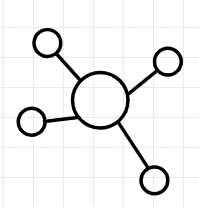Authority is usually signified by the title or position of the leader in an organization, and that authority is given to an individual to accomplish something. Higher levels of authority are given to people to accomplish more complex things. Sometimes authority is taken or assumed, and an agenda is forced on people to accomplish a thing, this is not good. Titles are made up, and not necessarily significant, but authority is significant because people listen to authority, this is also not necessarily good. Authority is linked to responsibility and hence accountability. If a leader does not maintain the link of responsibility and accountability—integrity is broken, and that leader is no longer trustworthy. It’s debatable if that leader is legitimate. Unfortunately, authority often becomes dictatorial because the individual lacks character. A dictator is a politically based leader who seeks absolute power via policy and compliance. A dictator seeks the ultimate in ego gratification and operates in absolute corruption and absolute control.
When a leader cannot influence, the dependence on authority grows to exceedingly high levels. Leading with authority only and little influence is dangerous, and serves as a warning sign that the leader does not have the necessary ability to influence people or circumstances to accomplish the organizational objective. Without influence a leader becomes increasingly desperate, resentful, hateful, and fearful, and has to leverage their authority (i.e., power tripping) to control people, to drive people, to use people because they are not able to influence them. The leader focuses completely on their positional authority because they don’t want to lose their position, and they don’t want to voluntarily give it up even though they should. Authoritarian leaders become extremely selfish people who mistreat people and flatten the discretionary effort of their people, and yet the authoritarian leader expends incredible amounts of effort retaining their position.
Influence of others starts with self-influence. Your ability to influence yourself is a process. First, you learn new knowledge, attitudes, abilities, skills, and experience. Second, you develop your competencies. Third, you increase your capability, and fourth you expand your capacity to effectively focus your behavior toward your goals. Having goals motivates you toward success. Centeredness provides you with four efficiencies: awareness, connection, empowerment, and performance by which you experience authenticity. Self-influence is the most powerful source that flows from the authenticity of you, the individual, from your center. Influence starts developing with an individual’s knowledge, abilities, attitude, skills, and experience (i.e. KAASE), but also expands from the underpinnings of one’s personality traits (i.e., temperament, character, habits, and attitude), and behavior (i.e., assumptions, beliefs, values, and perceptions). Influence is also about the maturation of your mental, social, physical, spiritual, and emotional intelligence (Rogers, 1961; Salovey & Mayer, 1990). Your development as a human being requires you to understand the process of influence and how one changes over time and adjusts to connect to others and opportunities. It also provides you with a set of tools to advance your personal leadership development, your work, and ultimately your vision of what you want to accomplish. To be an effective leader, one must develop self-leadership. Self-leadership provides a comprehensive self-influence perspective (Manz, 1983, 1986, 1991; Ryan & Deci, 2000; Du Plessis, 2019) and includes
- self-determination theory,
- intrinsic motivation,
- social development,
- well-being,
- self-control,
- social-cognitive theory,
- self-determination,
and serves as a process for leading oneself to overcome obstacles and includes the importance of value-based self-inspiration and self-goal setting in the self-leadership journey (Stewart, et. al., 1996; Seligman, 2018).

